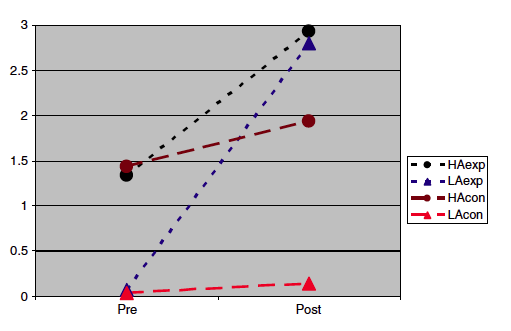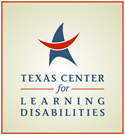Zohar, A., & Ben David, A. (2008). Explicit teaching of meta-strategic knowledge in authentic classroom situations. Metacognition Learning, 3, 59–82.
Summary by Dr. Greg Roberts
Overview
The emphasis of schooling has evolved over the past 50 years. The acquisition of basic skills and large amounts of content remain important; however, the strategic use of information is increasingly a focus. In the United States, this shift is reflected in the Common Core State Standards (Standards). The Standards expect that students in middle and high school content area classrooms (science, history, etc.) not only read and comprehend increasingly difficult text, but also use newly learned information as evidence for building arguments, defending perspectives, and engaging in classroom discourse to achieve a more nuanced understanding of the content area in question. More capable students and students with early opportunities to develop basic reasoning skills are likely to flourish under the new Standards. Students less prepared for secondary school will struggle, and their content area teachers will be challenged to cover the basic information of their domain while also developing the “content literacy” that the Standards emphasize.
Learning new and difficult content requires effort, and becoming content area literate (for example, thinking like a scientist, thinking like a historian) can be a long road for many students. Zohar and Ben David propose meta-strategic knowledge as a means of supporting student literacy in science, math, history, and other content areas. Meta-strategic knowledge is a subcomponent of metacognition. It represents general, explicit knowledge about the thinking strategies that characterize a content area. For example, in the science classroom, students are expected to establish and analyze causal relationships, construct reasonable arguments, formulate research questions, test hypotheses, and draw valid conclusions. Students with high levels of meta-strategic knowledge understand how these processes work across different scientific questions. These students understand cognitive strategies for establishing a causal relationship (for example), can apply this knowledge to establish a causal link, and can generalize this knowledge and its application across a range of scientific questions. Zohar and Ben David test the possibility that students acquire meta-strategic knowledge in the context of learning the common content of a given discipline. They focus on science.
Study Design
Zohar and Ben David explicitly taught meta-strategic knowledge to a group of eighth-grade science students. Participants (119 students) were randomly assigned to the treatment or to a comparison condition; the treatment and comparison groups included equal numbers of high-achieving and low-achieving students. The intervention was embedded across 12 lessons in students’ science classrooms. Treatment and comparison students were taught the same content about genetics and reproduction in the same amount of instructional time. The lessons were about controlling extraneous variables in an experimental setting (creating comparable groups for comparison, isolating the dependent variable, enhancing internal validity, etc.). Only the treatment group received additional instruction on “how to think about” controlling experimental variables (in other words, they were also taught meta-strategic knowledge).
Strategies were described by using explicit statements that students could individually and socially explore. The idea was to promote discussion and reflection. Strategy instruction aligned with students’ work with the content in question, with the instructor “thinking aloud” about controlling variables. In other words, the instructor taught why, when, and how to control variables while also teaching (or thinking aloud about) ways to think about the why, when, and how. The assumption was that rules, generalizations, and principles of good thinking need to be connected to the concrete experiences in which a strategy may be used, not presented in abstract or general contexts. If teachers expect students to apply a general thinking strategy to a specific context, demonstrating and explicitly talking about that strategy in “authentic” and applied circumstances is necessary. In this case, the “control of variables” strategy was demonstrated through a seed germination experiment, a guinea pig experiment, and a series of simulated experiments that used software developed by the investigators.
The instructional routine as applied to controlling variables was organized as follows in each of the three exercises:
- Name the strategy (control of variables).
- Recognize the necessity to control variables if the resulting inferences are to be valid.
- Know how to use the strategy (compare between at least two cases in which all variables remain constant except the target variable).
- Know how not to use the strategy (know that it is wrong to change more than one variable at a time).
- Be able to identify when to use the strategy (know that variables must be controlled to establish causal relationships).
Results
Students in the treatment classrooms outperformed comparison students on a measure of strategic knowledge about the experimental “control of variables” and on a measure of general strategy knowledge related to experimental control of variables. At 3 months postintervention, the differences were still evident. Further, both low- and high-achieving students in the treatment made gains in strategic and meta-strategic knowledge, scored comparably at posttest, and outscored even the high-achieving students in the comparison.
Figure 2 Figure 3

Figure 2 from Zohar & Ben David, 2008, p. 73.
Strategic level in the four subgroups: Mean scores at pretest and posttest. HA = high achievers; LA = low achievers; exp = experimental (treatment) condition; con = comparison.
Recommendations
This study supports explicit, guided instruction to develop students’ meta-strategic knowledge and practice:
- The researchers distinguish between explicit and direct instruction. Direct instruction in a content area like science focuses on students’ memorization of content and may not address the “literacy” expectations outlined in the Standards. Their intervention represents explicit instruction.
- The researchers also describe the intervention as guided, stressing that this guidance occurred at the level of “thinking about thinking,” not with the three applied activities (simulations, seed germination study, guinea pig study). Providing support at this higher level of instruction helped students understand and apply a fairly sophisticated skill (experimental control of variables) and exposed students to more general thinking strategies. As demonstrated by the use of random assignment and a comparison group, students’ content knowledge was higher than it would otherwise have been. In addition, students engaged in the kinds of discourse described in the Standards, enabling them to practice these types of skills during instructional time.
For classroom teachers, the findings underscore the importance of teaching students how to think about the content they encounter in the classroom. The encoding of basic information will continue to be an important part of the educational process. Students need to know the basic content that comprises a domain. However, being able to use that information or contribute to the knowledge base at some future point will depend on more sophisticated types of knowledge, such as meta-strategic knowledge.
